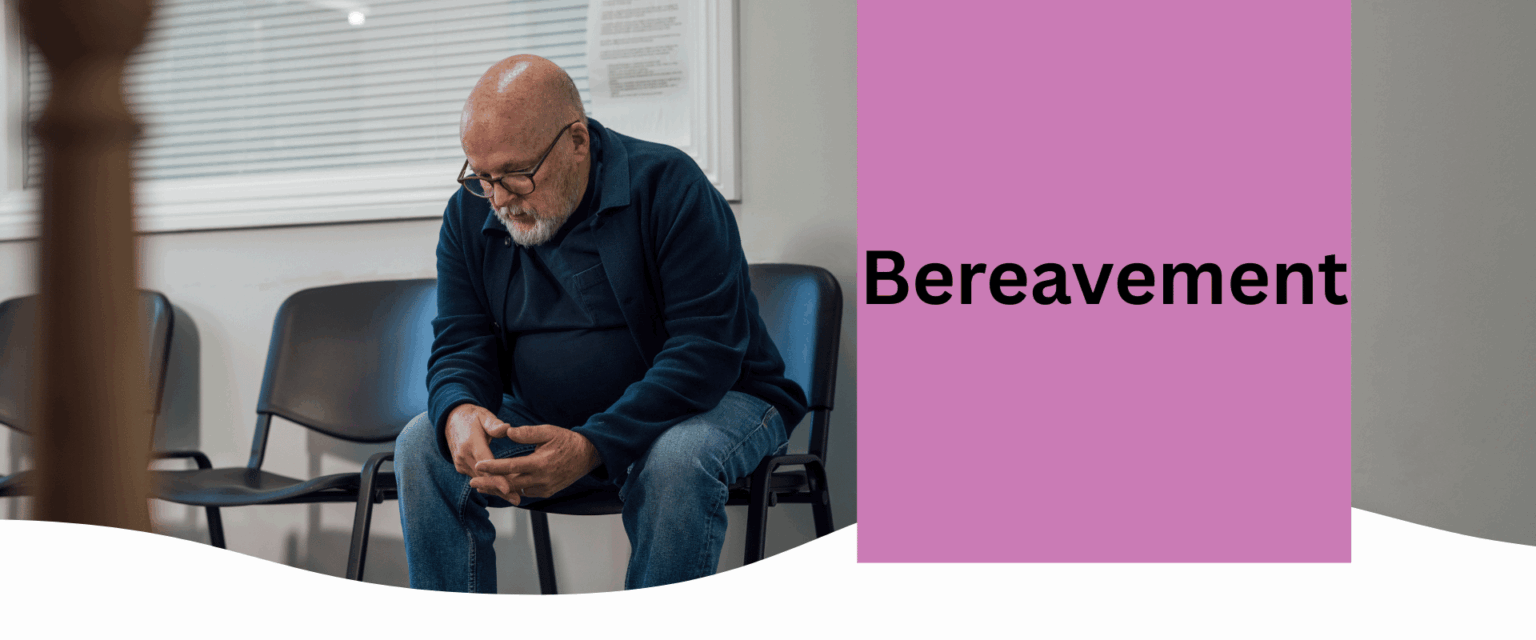
Home » Palliative Care Journey » Bereavement
‘The pain of grief is just as much part of life as the joy of love: it is perhaps the price we pay for love, the cost of commitment. To ignore this fact, or to pretend that it is not so, is to put on emotional blinkers which leave us unprepared for the losses that will inevitably occur in our own lives and unprepared to help others cope with losses in theirs.’
Dr Colin Murray Parkes, from Bereavement: Studies of Grief in Adult Life
Bereavement and grief are natural responses to the loss of a person important to you. While the two terms are often used interchangeably, they have distinct meanings.
Bereavement refers to the state of having experienced the loss of a loved one. It most often refers to the time after a loss when emotions are at their most profound. While bereavement is usually associated with death it can also occur after other significant losses such as the end of an important relationship or a major change in a person’s health. Bereavement after a loss is often intense and can impact your ability to function normally, during this time it is normal to experience symptoms of grief like shock, guilt, sadness, anger and depression.
Grief is a natural process of reaction and adjustment to loss and change. It includes a wide range of feelings such as sadness, guilt, loneliness, confusion and even relief. Grief can vary in intensity and duration from person to person. The grieving process can be complex, and everyone experiences it differently.
“Understanding Grief” is a useful leaflet from the Irish Hospice Foundation and can be found here. See www.bereaved.ie for more free resources.
Anticipatory grief is a type of bereavement that may occur when a person important to you is dying. While the person is not gone yet, loved ones may experience feelings of grief including sadness and anger as they prepare for the loss of their loved one. For more on Anticipatory Grief, click here.
Bereavement can be painful and exhausting. While it isn’t something that people get over, the intensity of these feelings of grief usually lessens gradually over time. Some people can experience a more consistent for of bereavement that is known as complicated/prolonged grief. This form of bereavement is characterised by feelings of intense feelings of sadness and pain that persists for a longer period of time. “When Grief Gets Stuck” is a useful leaflet from Irish Hospice Foundation and can be found here.
Grief is confusing. While it’s completely natural to worry and want to protect children and teenagers, the best thing to do is give them age-appropriate information about a death. https://www.childhoodbereavement.ie/ offers a range of helpful resources and guidance to support bereaved children and adolescents.
Because grief and loss are normal life experiences, most people find their way through the pain with support from friends and relatives. Some people may find it helpful to attend a bereavement support group, or one-to-one support in their locality. This may be helpful if you would like to talk to people outside of family and friends, or if you feel you would like extra information.
Here are a few suggestions for supporting yourself during this time.
If you are feeling very low or anxious; you are very tired and unable to sleep; you are worried about how you are coping; you have been bereaved for more than six months and your grief remains very intense and gets in the way of everyday life, it is a good idea to talk to your GP (General Practitioner) or seek advice from the palliative care service that your loved one was for cared by. A very small number of people get stuck in their grief and your GP can help identify supports, such as professional counselling.
Watch the following video the Davies’ Family experience of bereavement by clicking here
The following videos provide further information on bereavement and grief:




What are the common questions that a chaplain hears?